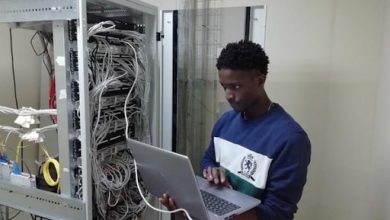What is Forensic Engineering in Toronto!

Forensic Engineering in Toronto the application of engineering principles & techniques for the investigation of losses or malfunctions in effects, systems or networks it involves analyzing proof, interviewing witnesses & conducting investigations to ascertain the cause of a problem and frequently settling disputes regarding compensation or harm. The results of a forensic engineering analysis can be used in insurance claims and court proceedings to suggest ways to prevent similar issues in the future.
In Toronto, forensic engineering is widely used in many different industries, including construction, transportation, manufacturing, and consumer products. Forensic engineers in Toronto are often called upon to investigate problems that have led to failures, accidents, or disputes, and to provide impartial and unbiased expert opinions on the cause and extent of the problem. They use their engineering knowledge and expertise to determine the root cause of the problem, as well as identify any contributing factors that may have played a role.
One of the main goals of Forensic engineering in Toronto is to determine the cause of the problem and to make recommendations for preventing similar problems in the future. This is done by conducting a thorough investigation, which may include a site visit, collecting and analyzing physical evidence, interviewing witnesses, and conducting experiments or simulations. In some cases, the forensic engineer may also need to perform destructive testing on a failed component or product to determine the cause of the problem.
In Toronto, forensic engineering covers a wide range of areas and can be divided into several different types, including!
Structural Engineering:
This involves the investigation of failures or malfunctions in buildings, bridges, and other structures.
Mechanical Engineering:
This involves the investigation of failures or malfunctions in mechanical systems, such as machinery, vehicles, and consumer products.
Electrical Engineering:
This involves the investigation of failures or malfunctions in electrical systems, such as power systems, lighting systems, and electronic products.
Fire and Explosion Investigations:
This involves the investigation of fires and explosions and the determination of the cause and origin of the fire or explosion.
Environmental Engineering:
This involves the investigation of environmental incidents, such as oil spills, chemical releases, and contaminated sites.
Materials Engineering:
This involves the investigation of material failures, such as the failure of metals, polymers, and composites.
Biomedical Engineering:
This involves the investigation of medical devices and other healthcare products, and the determination of any design or manufacturing defects that may have contributed to a failure or malfunction.
Geotechnical Engineering:
This involves the investigation of problems related to soil and rock mechanics, such as landslides, sinkholes, and foundation failures.
Forensic engineers in Toronto may specialize in one or several of these areas and may use a combination of scientific and engineering principles, as well as legal and investigative techniques, to determine the cause of problems and resolve disputes.
The anatomy of a typical forensic engineering meeting for a structural engineer explains the unique characteristics of the forensic engineering profession!
A house floods a plumber decides that a water line implanted within a house slab is cracked and leaking. Also to flood injury, the house design and foundation sustain damage in the form of floor and brittle wall material cracking. The homeowner wishes to decide if the water from the leak caused the floor and wall damage. A forensic architect is engaged to resolve the cause of the clear harm to the floor and walls.
The forensic architect collects data, technically reviews the injury, creates a failure profile, synthesizes this data, develops a failure cause and origin hypothesis, and then says upon the hypothesis in the form of a concluding opinion. The homeowner may rely upon the professional’s opinion to make the proper damage repairs.
If the homeowner seeks to recuperate damages via the courts, the forensic engineer may be called to provide sworn testimony. The testimony probably would cover the basics of the architect’s failure statement and any other aspect of the case related to the creator’s examination. The sworn testimony may be limited to oral testimony. If the matter is litigated further, the engineer may be required to testify before a jury. While the courts may rely on the architect’s testimony as facts, the engineer’s affidavit will likely be scrutinized by cross-examination to allow the jury to decide the credibility of the architect’s opinion.
In Toronto, forensic engineering can encompass a wide range of different types of investigations. Some of the most common types of forensic engineering include!
Structural Forensics:
This type of forensic engineering focuses on investigating failures and malfunctions in buildings, bridges, and other structures. Structural forensics engineers may be called upon to examine issues such as cracks, settling, water infiltration, and other structural problems.
Transportation Forensics:
This type of forensic engineering involves investigating accidents and failures in the transportation industry, including cars, trucks, trains, and aircraft. Transportation forensics engineers may be called upon to examine issues such as mechanical failures, design flaws, and human error.
Product Forensics:
This type of forensic engineering involves investigating problems with consumer products, such as appliances, toys, and electronics. Product forensics engineers may be called upon to examine issues such as design flaws, manufacturing defects, and failure to warn.




